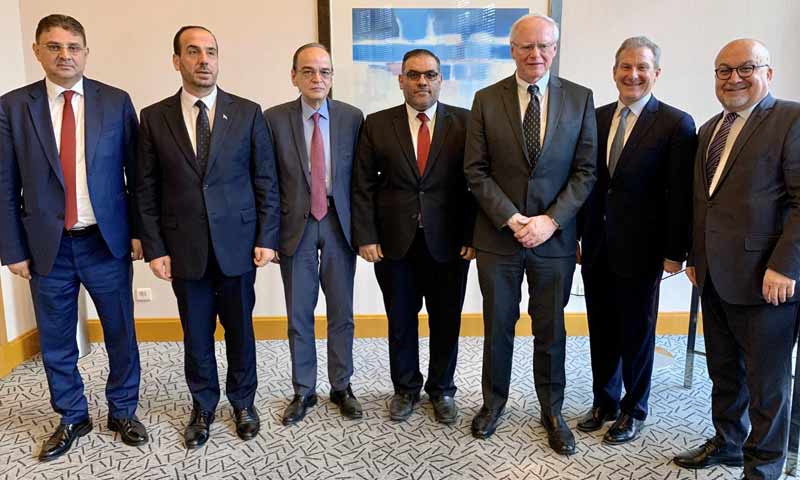Gabriel Moshe, an official in the Assyrian Democratic Organization (part of the Syrian opposition coalition and active in Syria’s Qamishli), said on Monday that a US delegation hinted to the officials of the Syrian opposition coalition to prepare for a dialogue with the Autonomous Administration of North and East Syria.
In an exclusive statement to North Press, Moshe added that the US remarks came within the framework of “focusing on the necessity of the unity of the Syrian opposition’s stance to the east and west of the Euphrates.”
This took place during a recent meeting held between a delegation from the US State Department and a delegation from the opposition coalition, following the meetings of the Constitutional Committee.
The US approach coincides with the participation of representatives of the State Department and the Syrian Democratic Forces (SDF) in the intra-Kurdish dialogue, which started about six months ago.
Discussions are currently taking place between the PYD-led Kurdish National Unity Parties and the Kurdish National Council in Syria (ENKS).
The Kurdish National Unity Parties are aligned with the Autonomous Administration, while the ENKS is part of the opposition coalition.
A mobilization against Damascus
Jamal Sheikh Baqi, secretary of the Syrian Kurdish Democratic Party (which is a part of the Kurdish National Unity parties), said that the United States, “is trying to mobilize the forces opposing Damascus, as a prelude to force the latter to start a political process.”
Faisal Yusuf, a member of the ENKS presidency, agreed with Sheikh Baqi and said, “The US seeks the unify the opposition forces, including the Kurdish forces to the east of the Euphrates, to pressure the implementation of the international resolutions related to the Syrian issue.”
“Reaching a Kurdish consensus is an opportunity to enhance the Kurdish role in the negotiations for a political solution in Syria,” he added.
So far, Autonomous Administration representatives have not participated in the international negotiations on Syria due to the Turkish refusal to include them.
Moshe believes that the success of the intra-Kurdish dialogue is a prelude to broad dialogues between all parties to reach consensus and understandings, “thus enhancing the chances of a political solution in Syria.”
“But the political forces to the east of the Euphrates, whether the Autonomous Administration or those represented within the [opposition] coalition, have only a weak position in the face of the regime,” he added.
This article was edited by The Syrian Observer. The Syrian Observer has not verified the content of this story. Responsibility for the information and views set out in this article lies entirely with the author.


